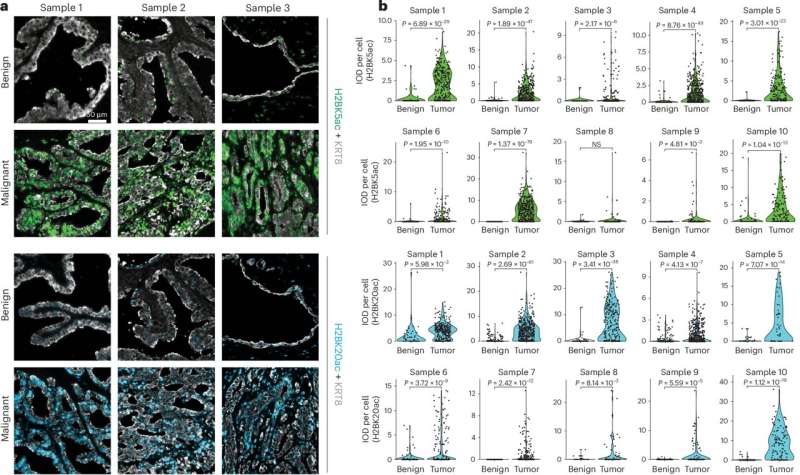Led by Arul Chinnaiyan, M.D., Ph.D., S.P. Hicks Endowed Professor of Pathology, professor of urology, and director of the Michigan Center for Translational Pathology, the team found that levels of H2BNTac, p300 and CBP are all elevated in prostate cancer compared to normal tissue.
Further experiments in prostate cancer cells showed that p300 and CBP are critical factors for active enhancers regulated by androgen receptors.
Given these new findings, Chinnaiyan worked with Shaomeng Wang, Ph.D. Warner-Lambert/Parke-Davis Professor in Medicine, professor of internal medicine, pharmacology and medicinal chemistry and director of the Michigan Center for Therapeutic Innovation, to develop a CBPD-409, which selectively degrades p300 and CBP, depletes the H2BNTac mark and shuts down oncogenic androgen receptor activity. CBPD-409 is highly potent and can be taken orally.

